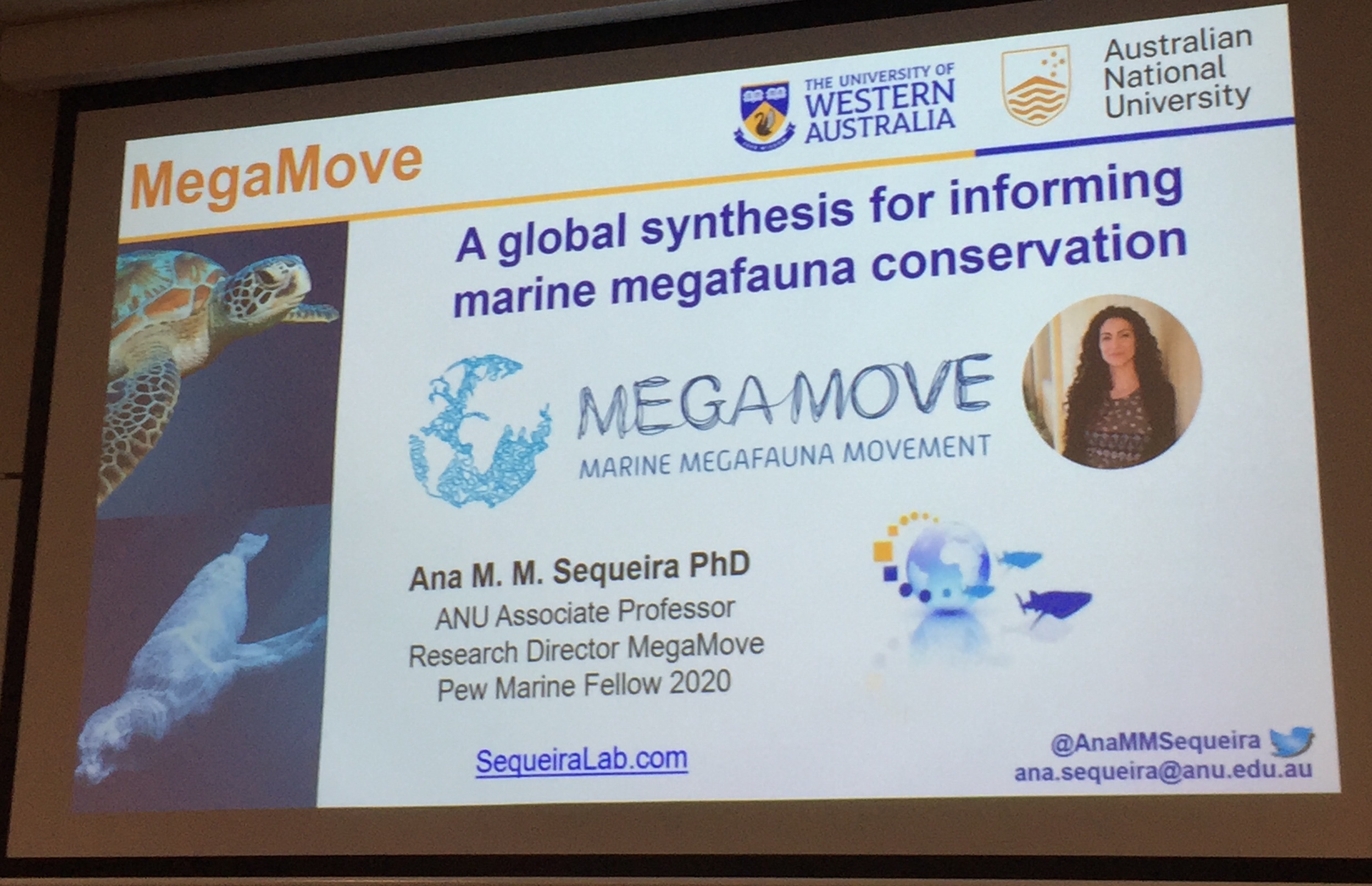Overhauling marine megafauna conservation at global scale

At the recent MegaMove workshop, funded by the Centre for Biodiversity Analysis, leading marine scientists were brought together from around the world to coordinate the efforts of the marine movement ecology community and provide innovative research for global conservation of marine megafauna based on a growing, standardised dataset of tracked movements.
As part of the CBA-funded Synthesis Group, the MegaMove team hosted a public event to share ideas, meet new colleagues, and potentially start new collaborations.
Ana M. M. Sequeira, ANU Associate Professor, Pew Marine Fellow and Research Director of MegaMove, began the afternoon of talks with a global synthesis for informing marine megafauna conservation. The project involves over 222 institutions and aims to create innovative research to inform global conservation of marine megafauna. The team is tracking movement patterns of marine megafauna to better understand their behaviour and the threats they face, such as fishing, plastic pollution, noise, and shipping collisions. The dataset includes over 10,000 tracks, highlighting the urgent need for conservation efforts.
Karen Evans, from CSIRO Oceans and Atmosphere, discussed the global seascape of ocean activities and initiatives, such as the 2030 Sustainable Development Goals, the Post-2020 Global Biodiversity Framework, and the United Nations Decades for the oceans. She highlighted the importance of understanding global governance and regional initiatives to increase impact and build trust with policymakers.
Anthony Richardson, from the University of Queensland, discussed developing approaches and tools for marine reserve design that are climate-smart and 3D. He highlighted the importance of identifying climate refugia, areas where species retreat to in times of stress, and minimizing exposure while maximizing retention.
Lucca Giuggioli (University of Bristol) spoke about math for movement modelling and complexity sciences, while Rob Harcourt (Macquarie) presented on animal-borne ocean sensors and the GOOS Network. He discussed the Seal Research program, which places sensors on the heads of seals to collect data on their diving behaviour and emphasized the importance of ethical and cost-effective research methods.
David Sims from the University of Southampton closed the workshop presenting the Global Shark Movement Project, which focuses on analysing tracking data from sharks. The team has built a database of shark movements and is mapping fishing vessels to identify hotspots of interaction. Sims also discussed the collision risk hotspots for whale sharks and the impact of ocean deoxygenation on the behaviour of sharks.
The MegaMove workshop was a call to action for marine scientists and policymakers to work together to protect and conserve our marine megafauna. With the threats of climate change, plastic pollution, and overfishing, it is more important than ever to ensure that our oceans are protected for generations to come.
